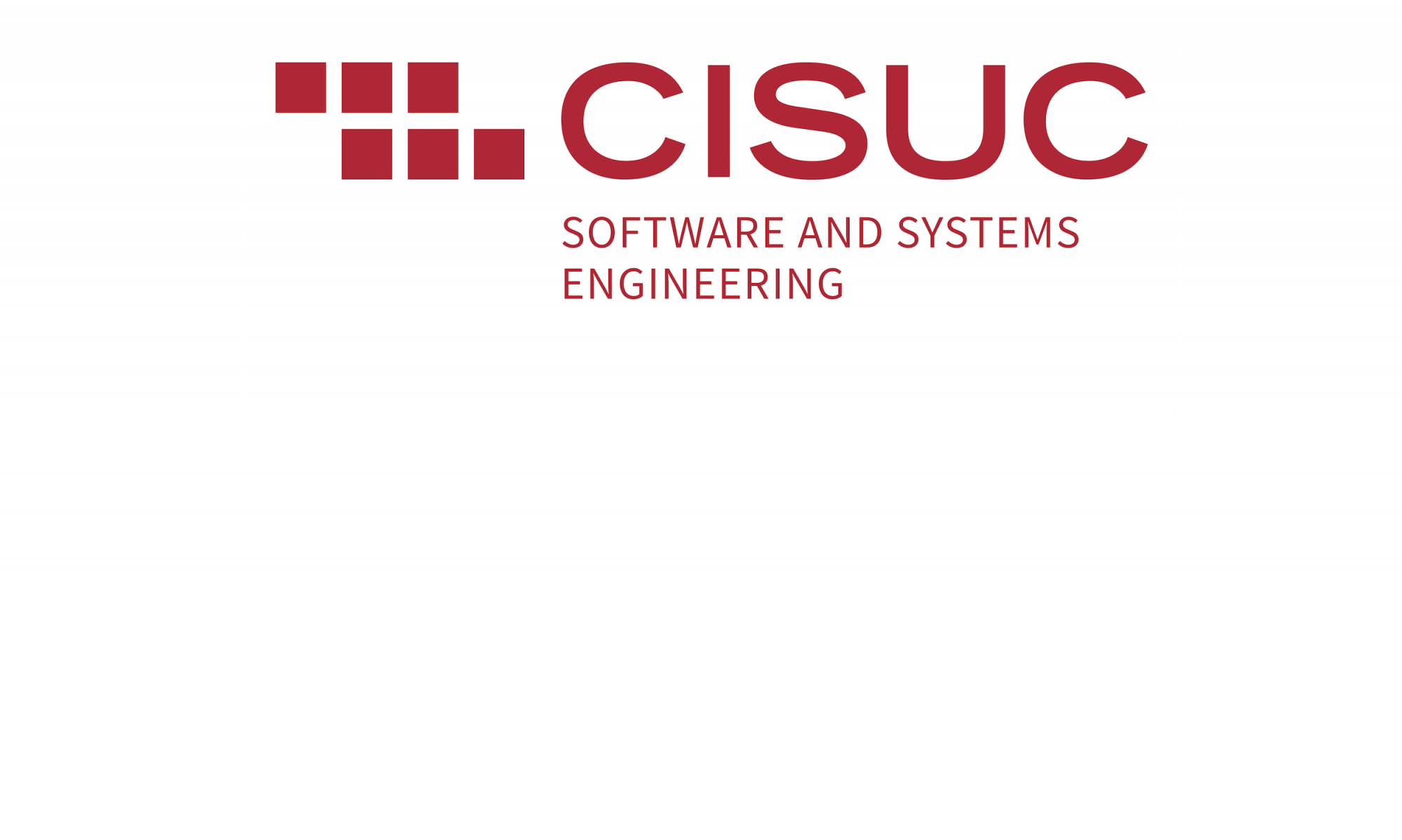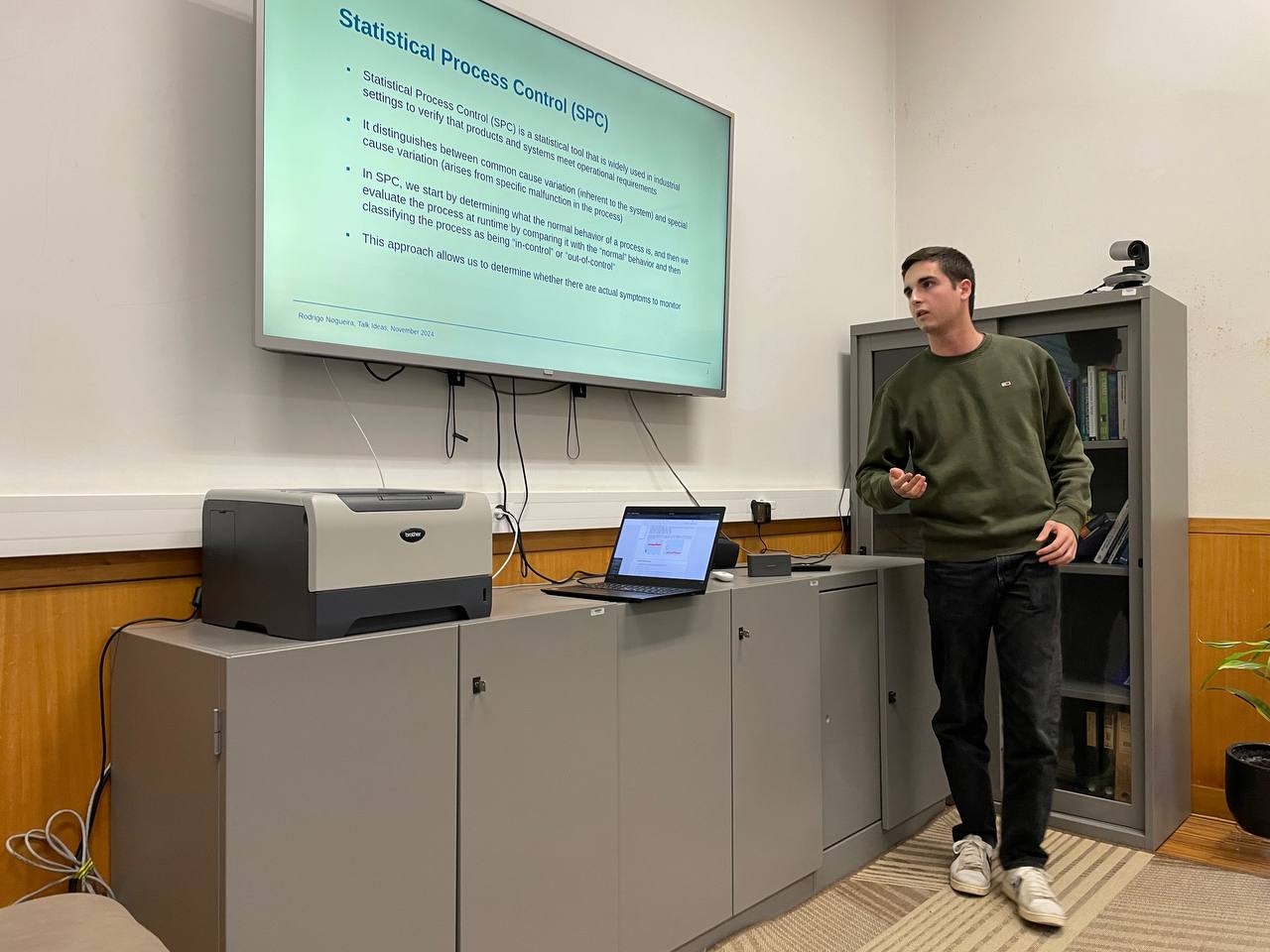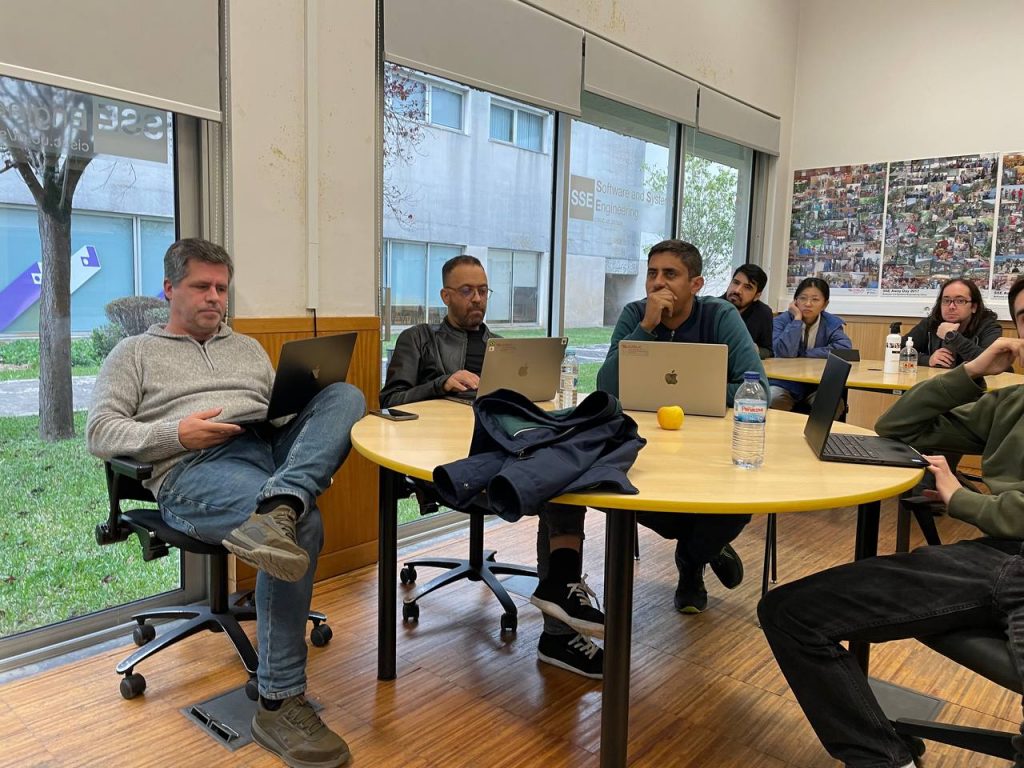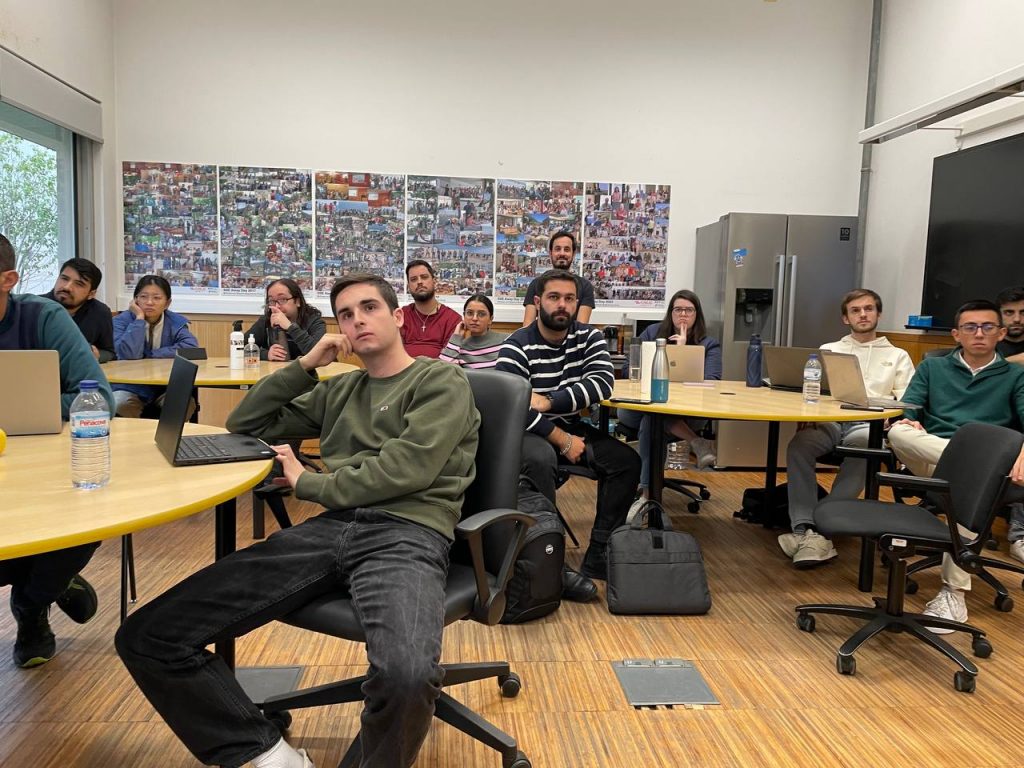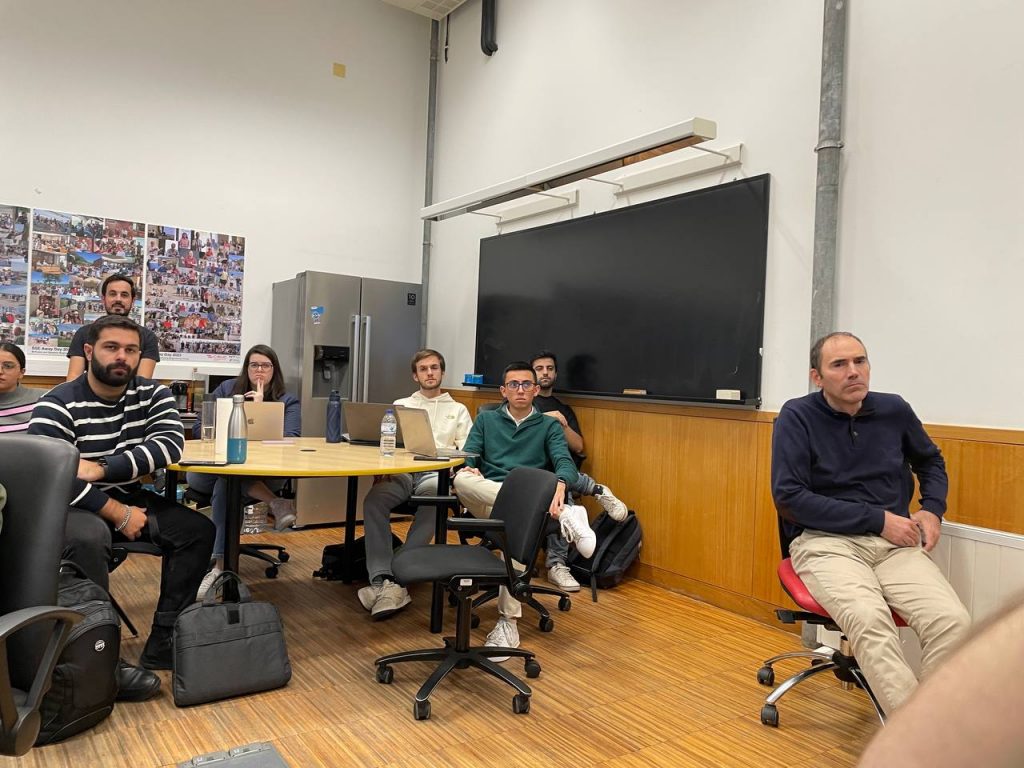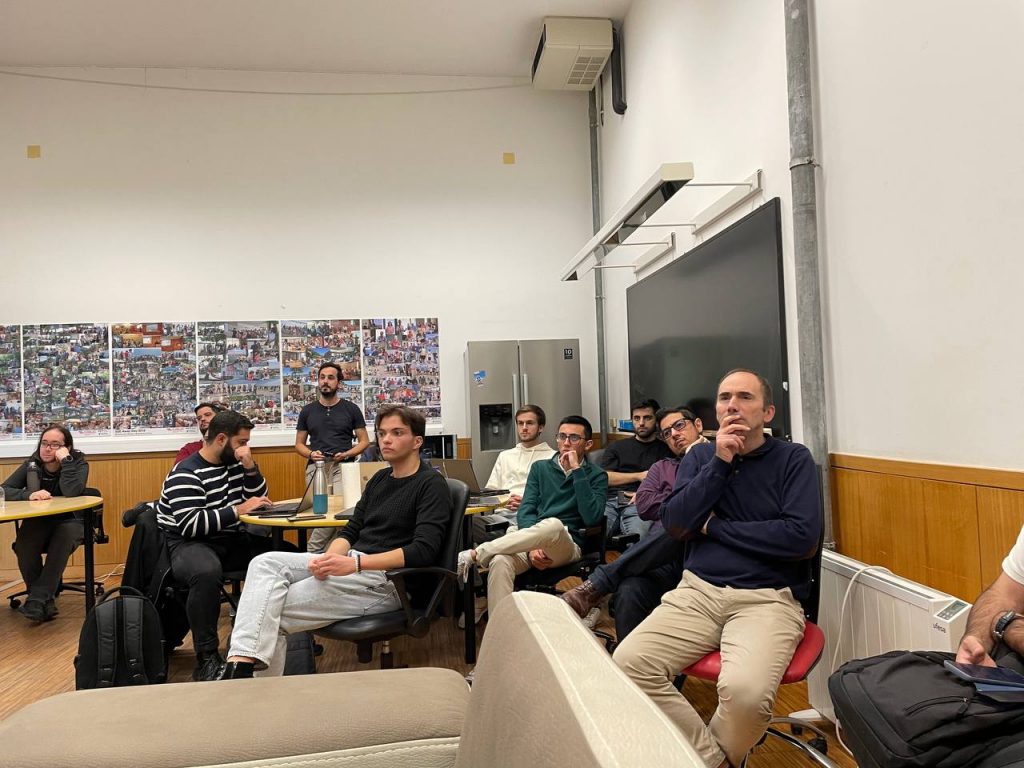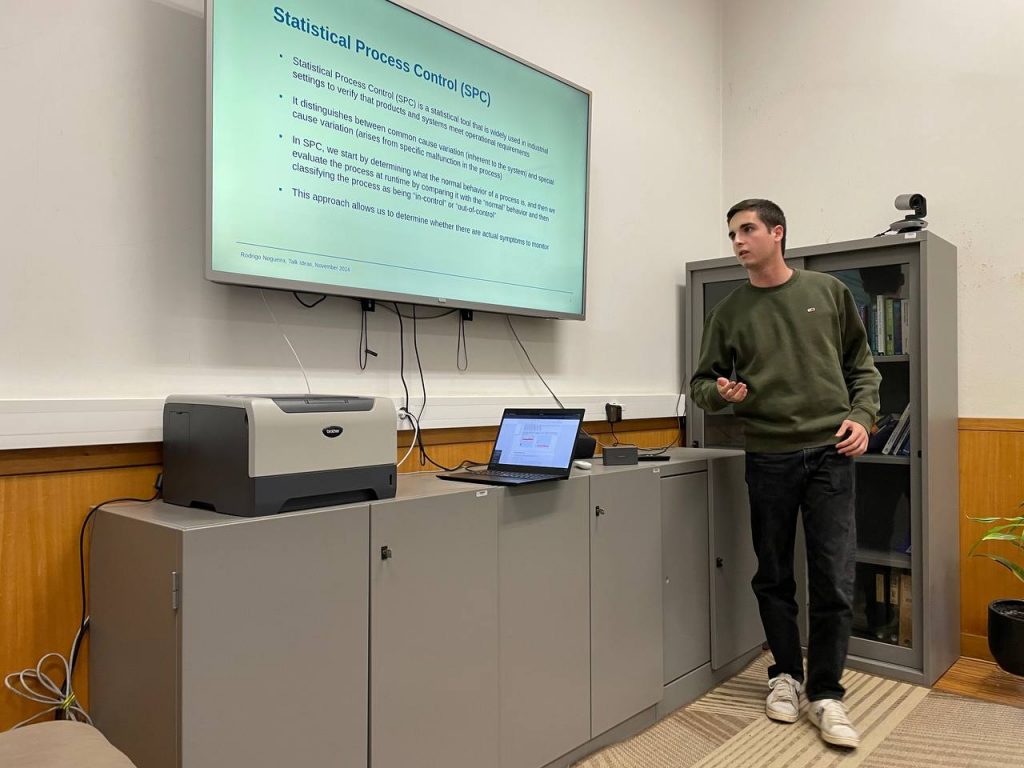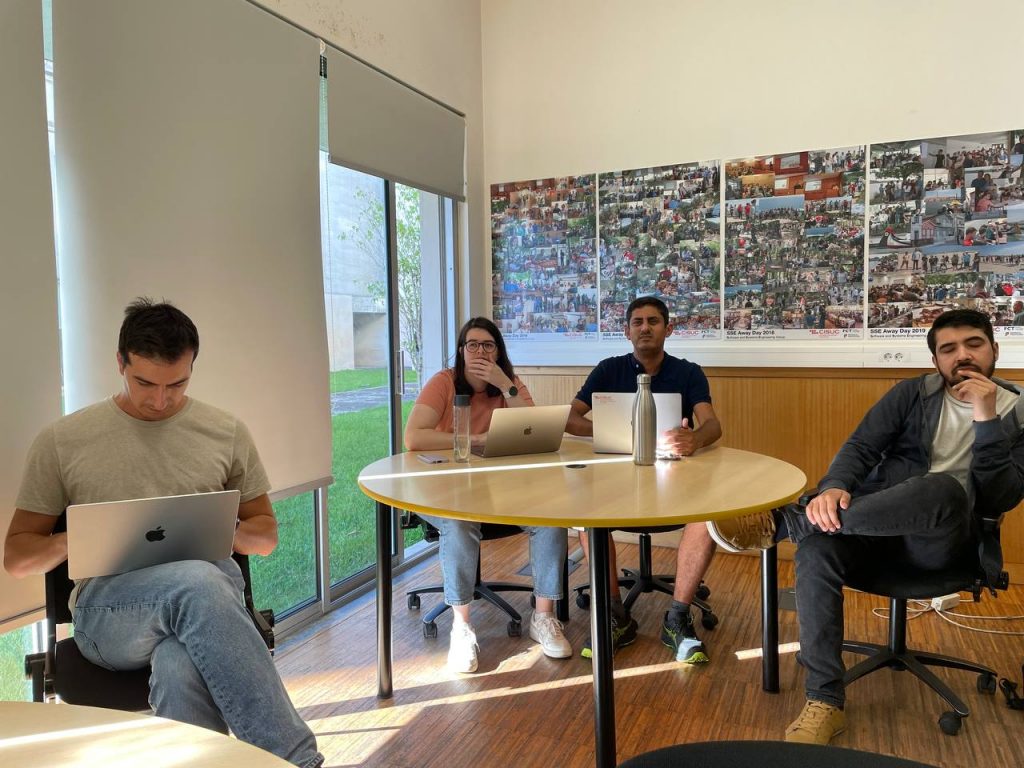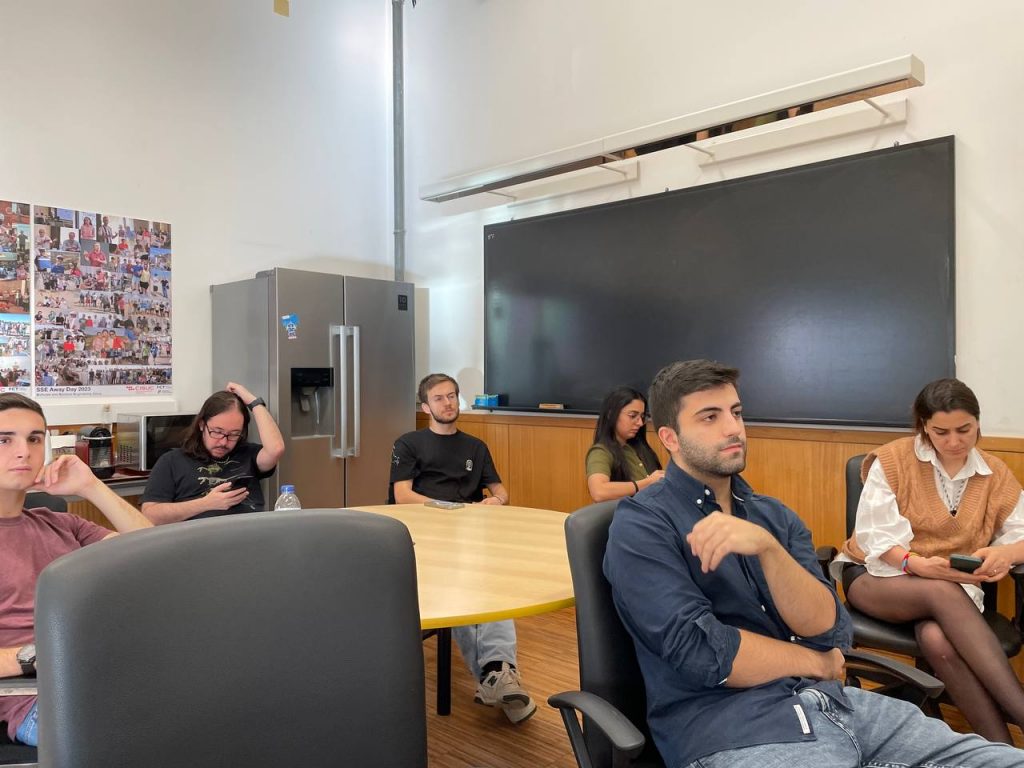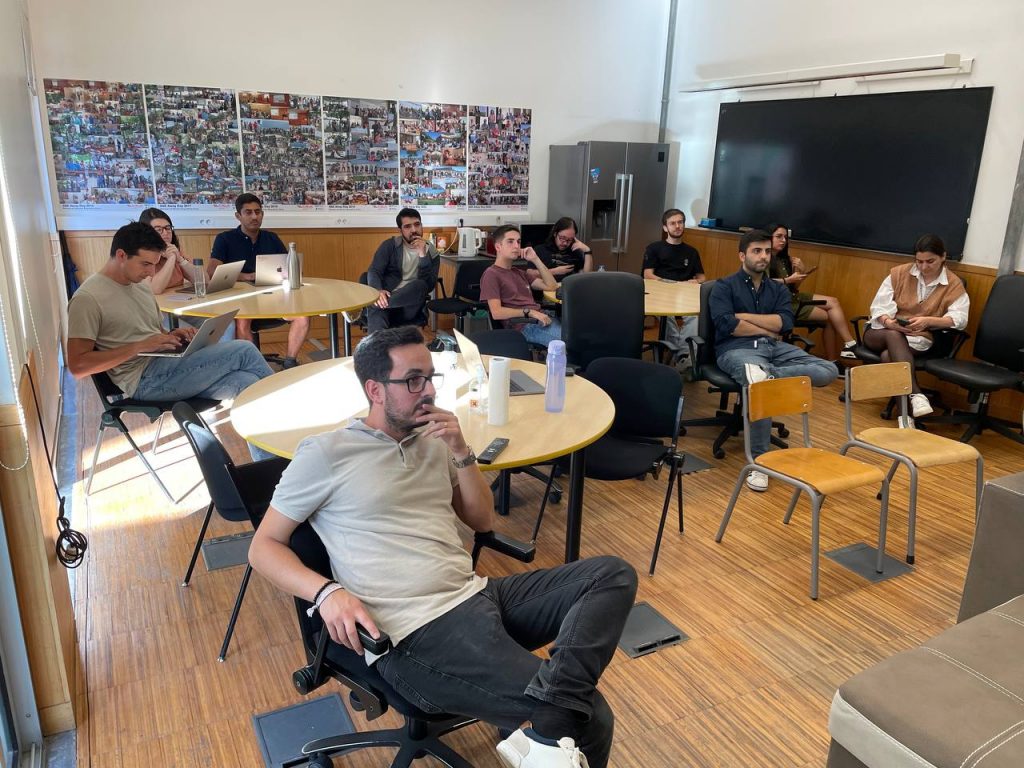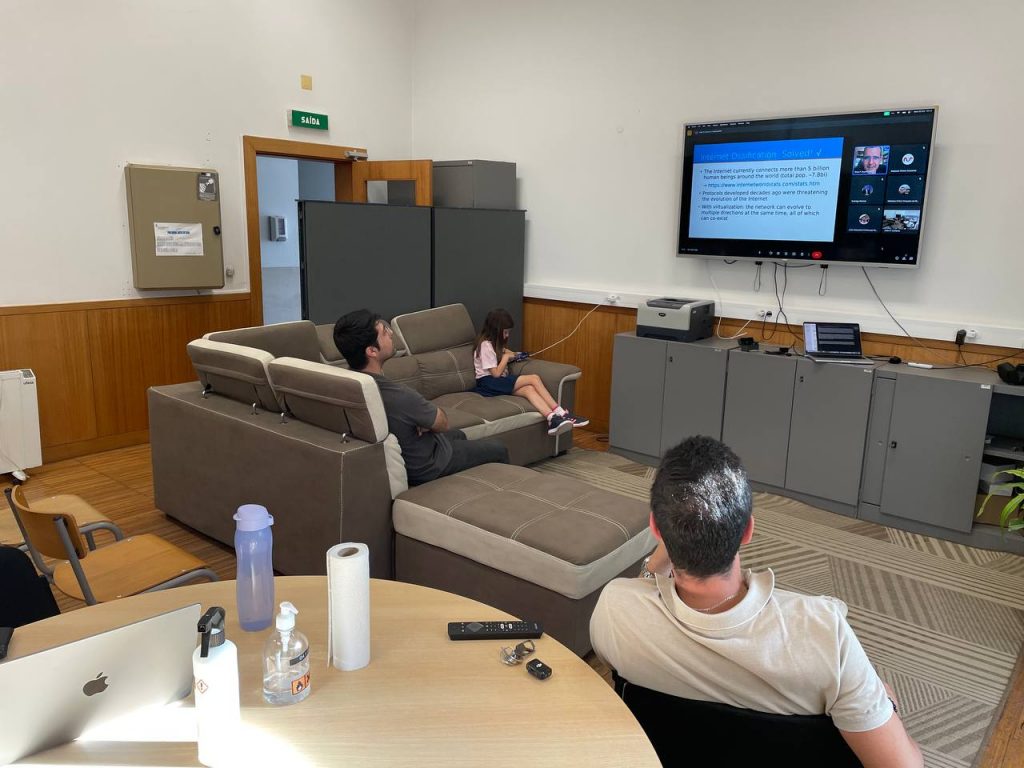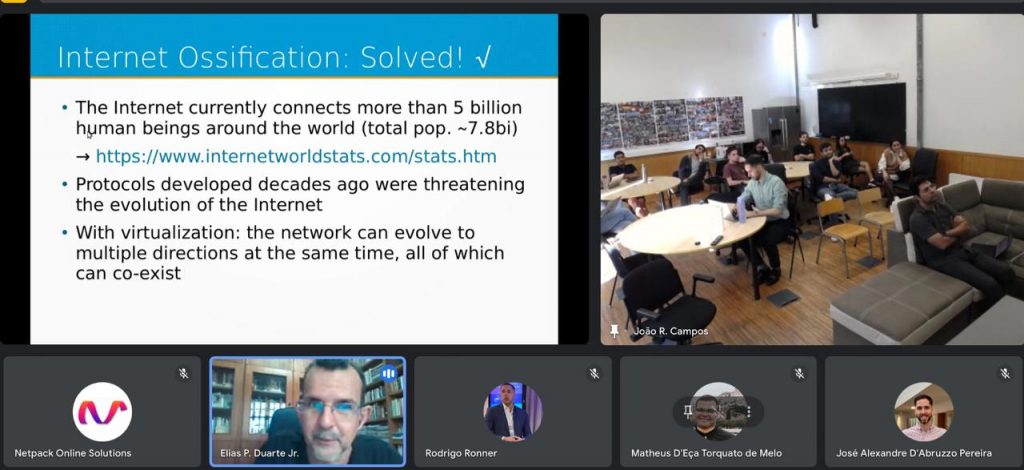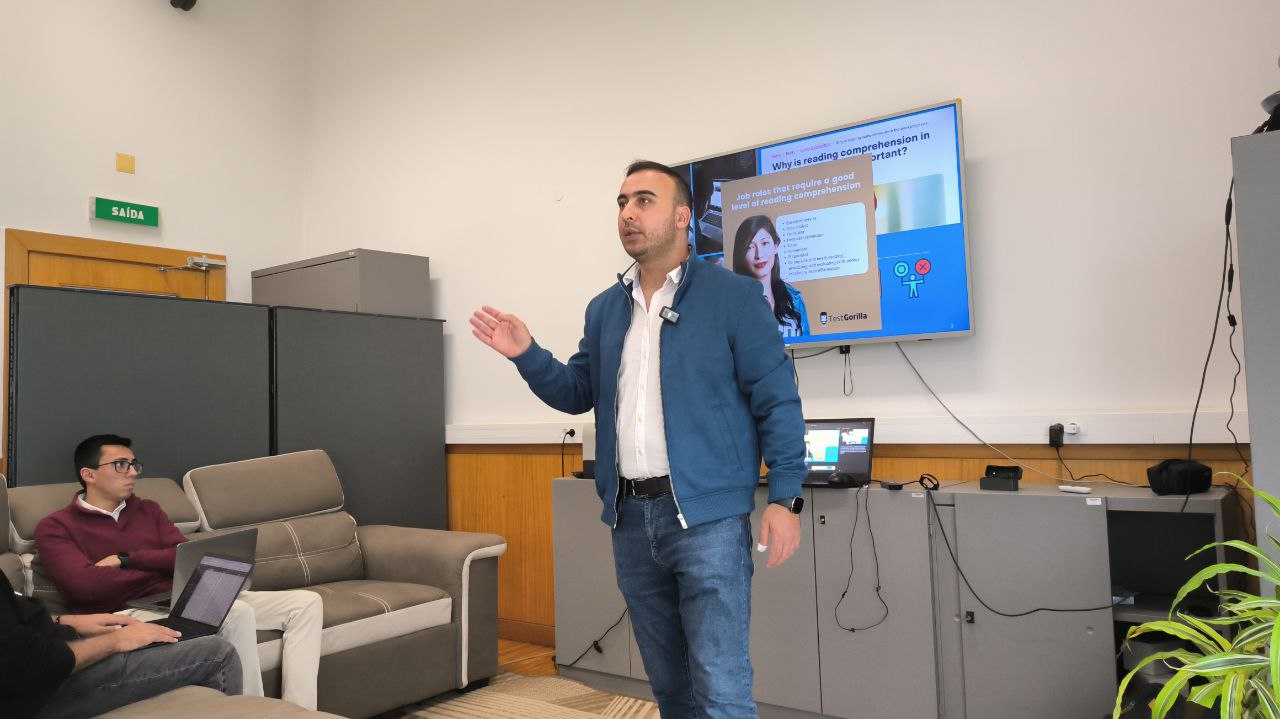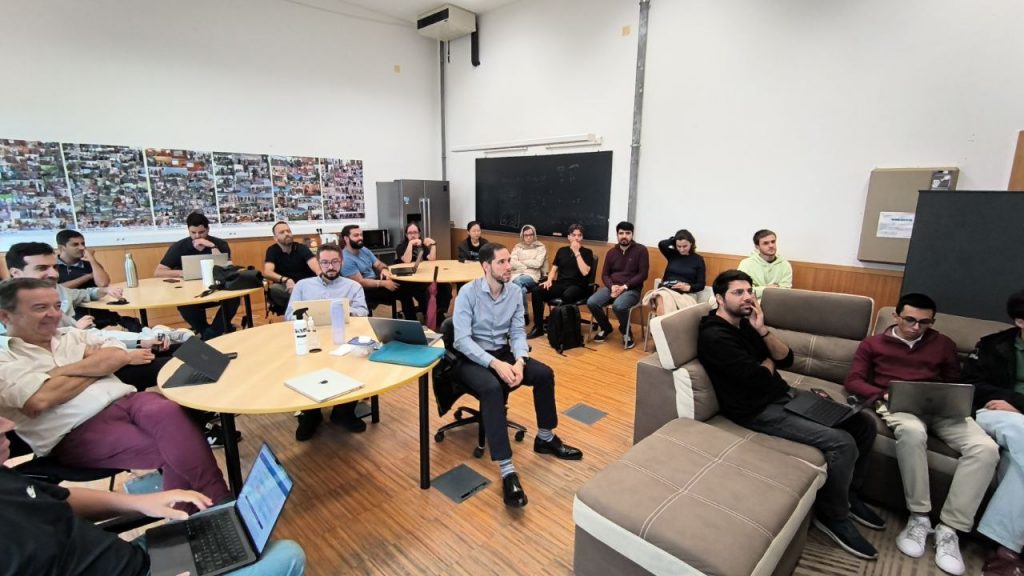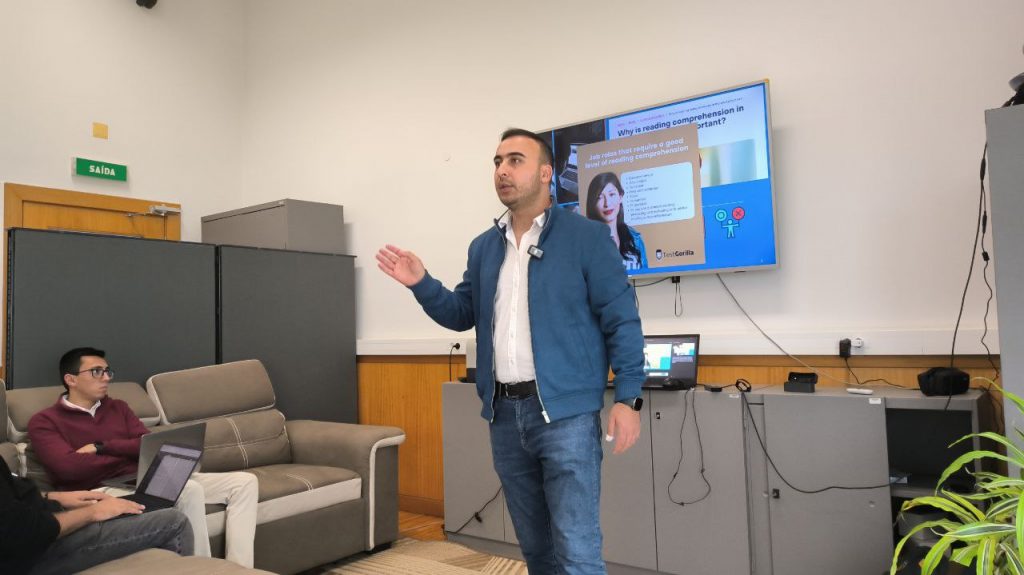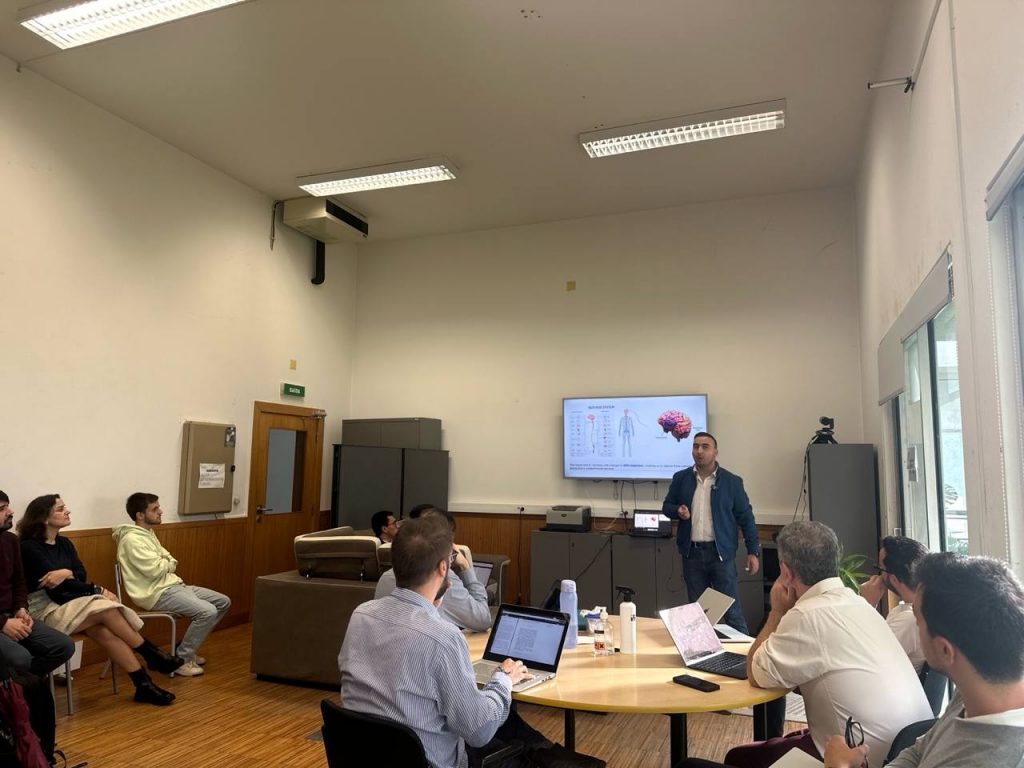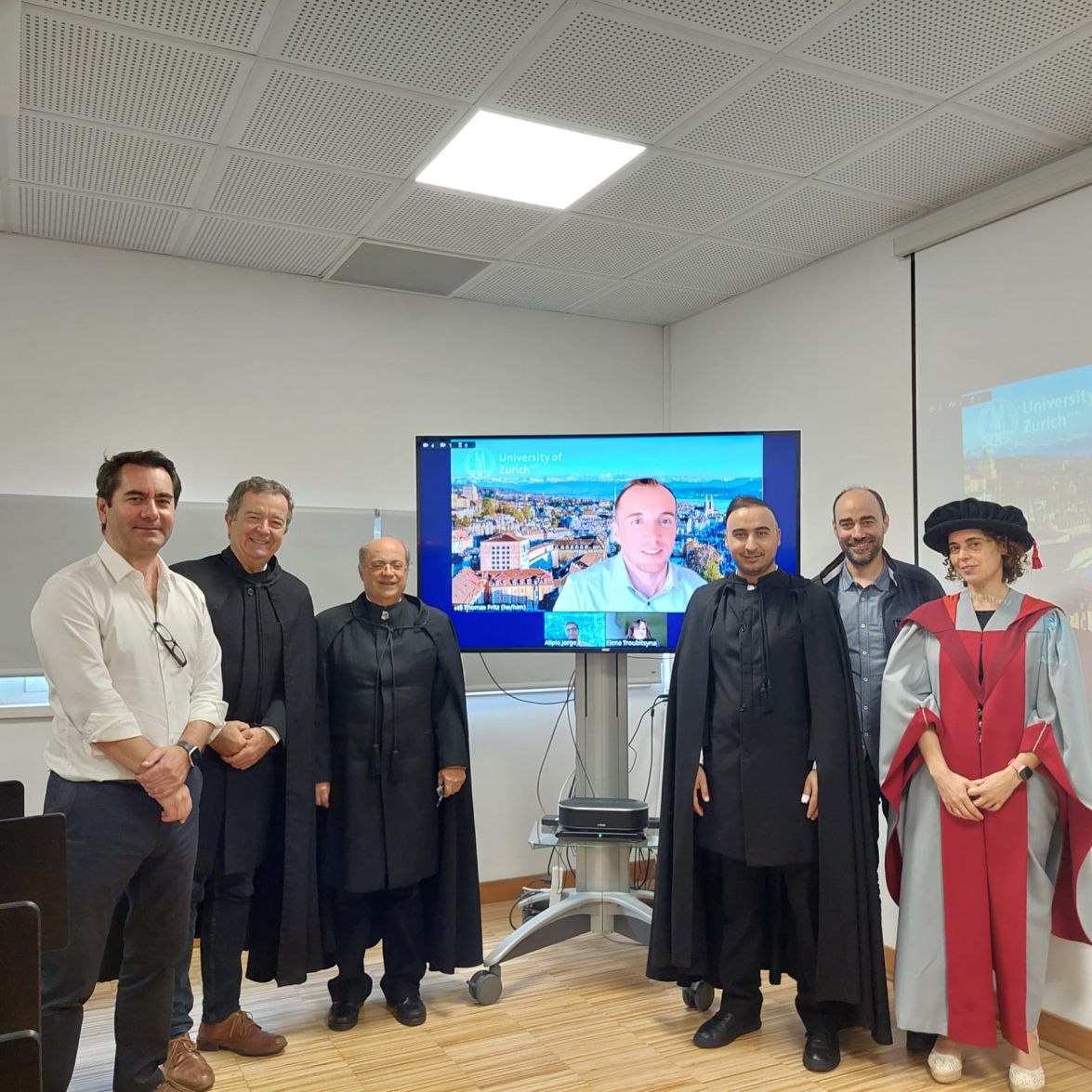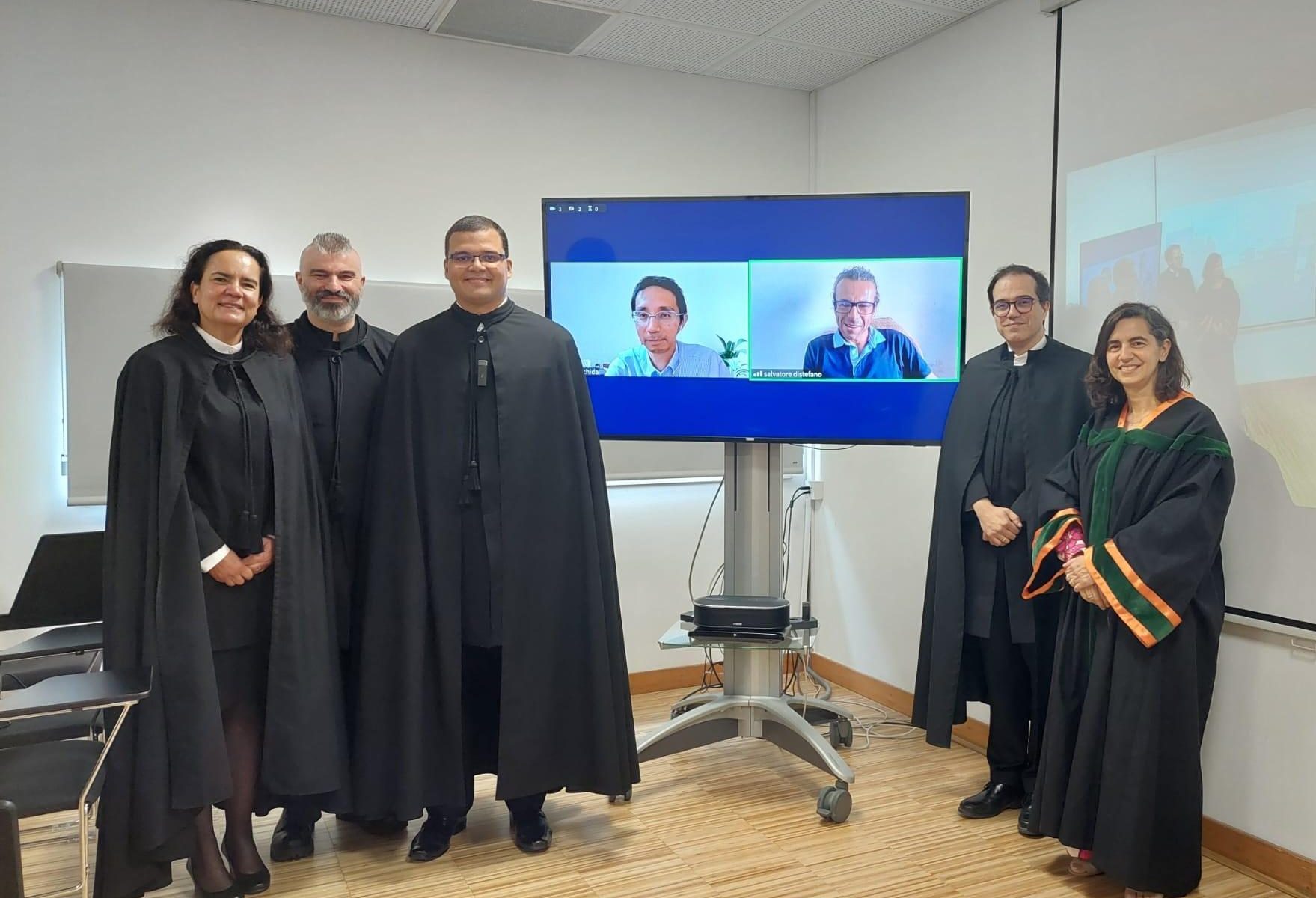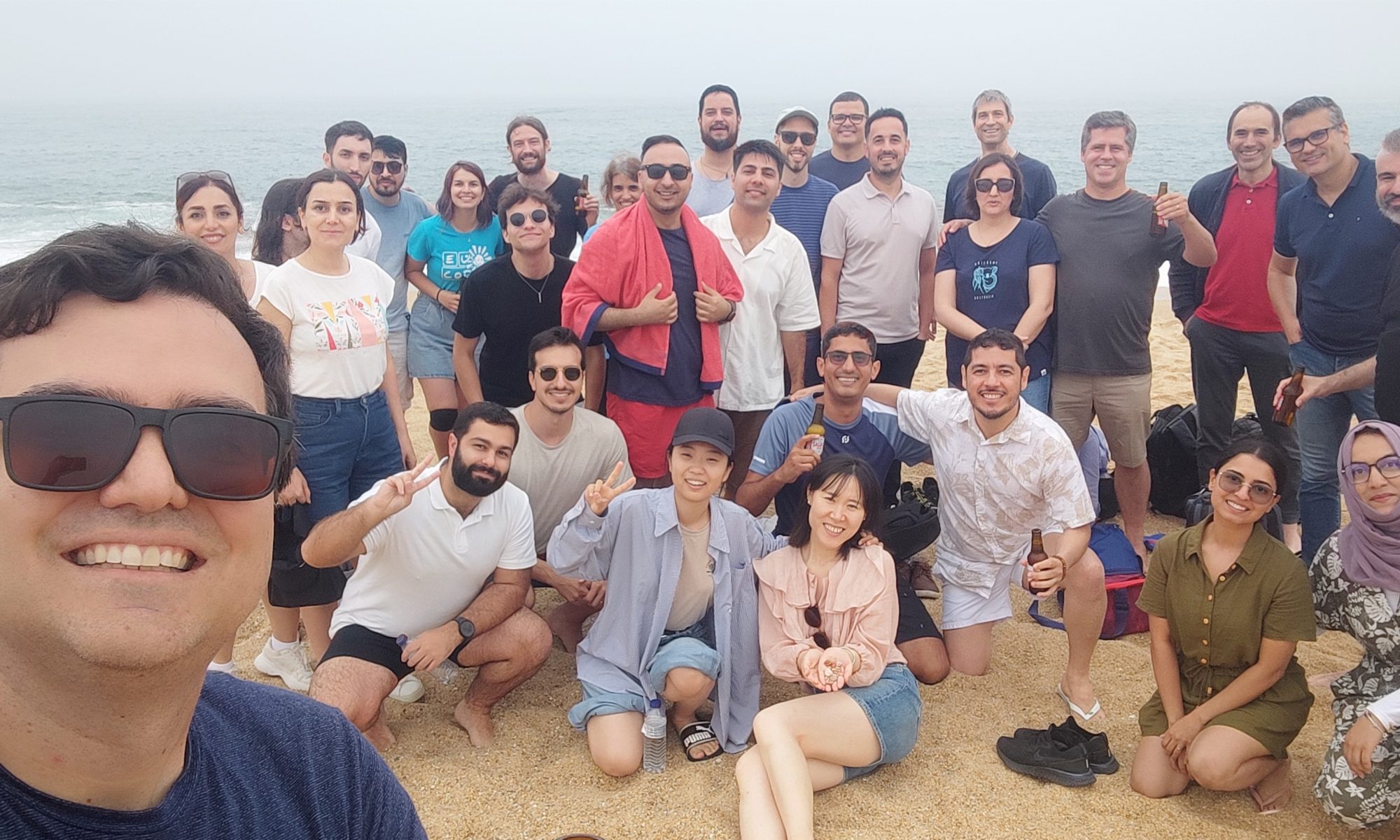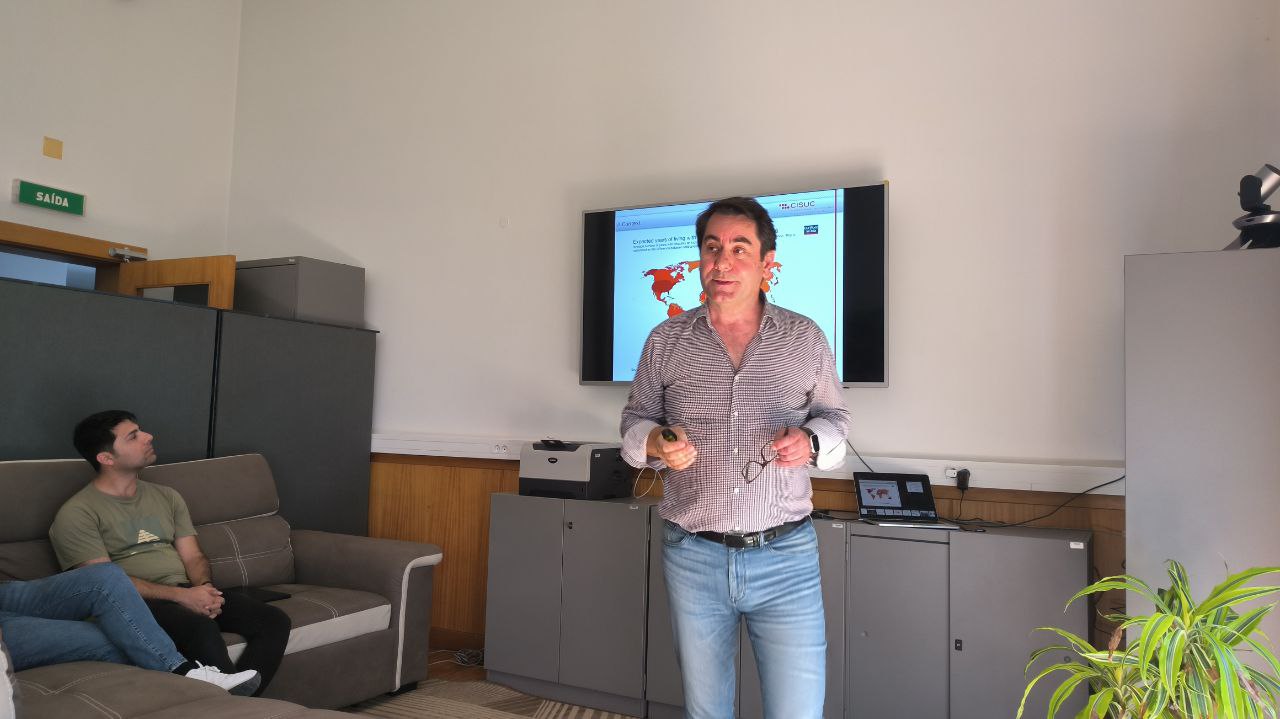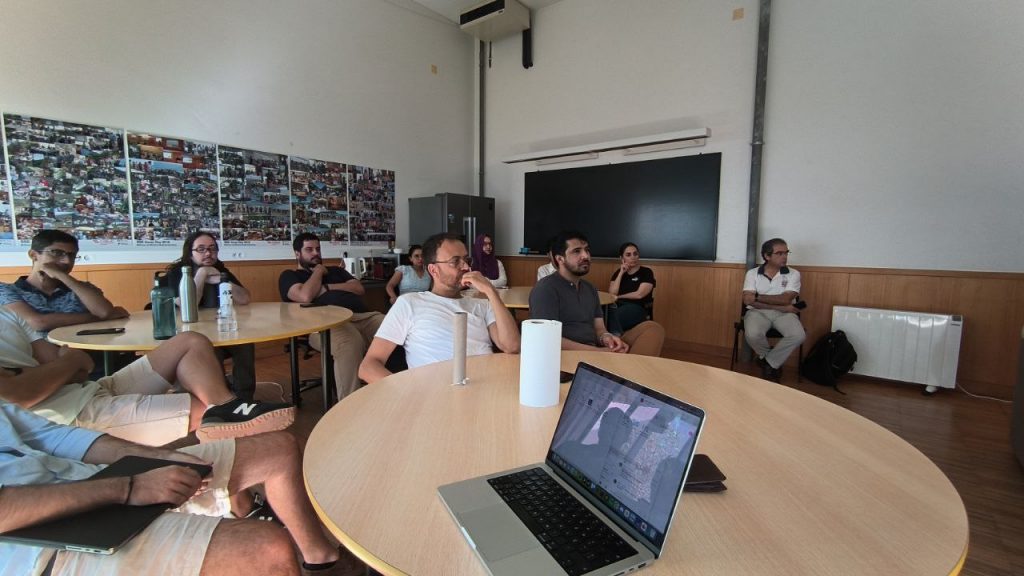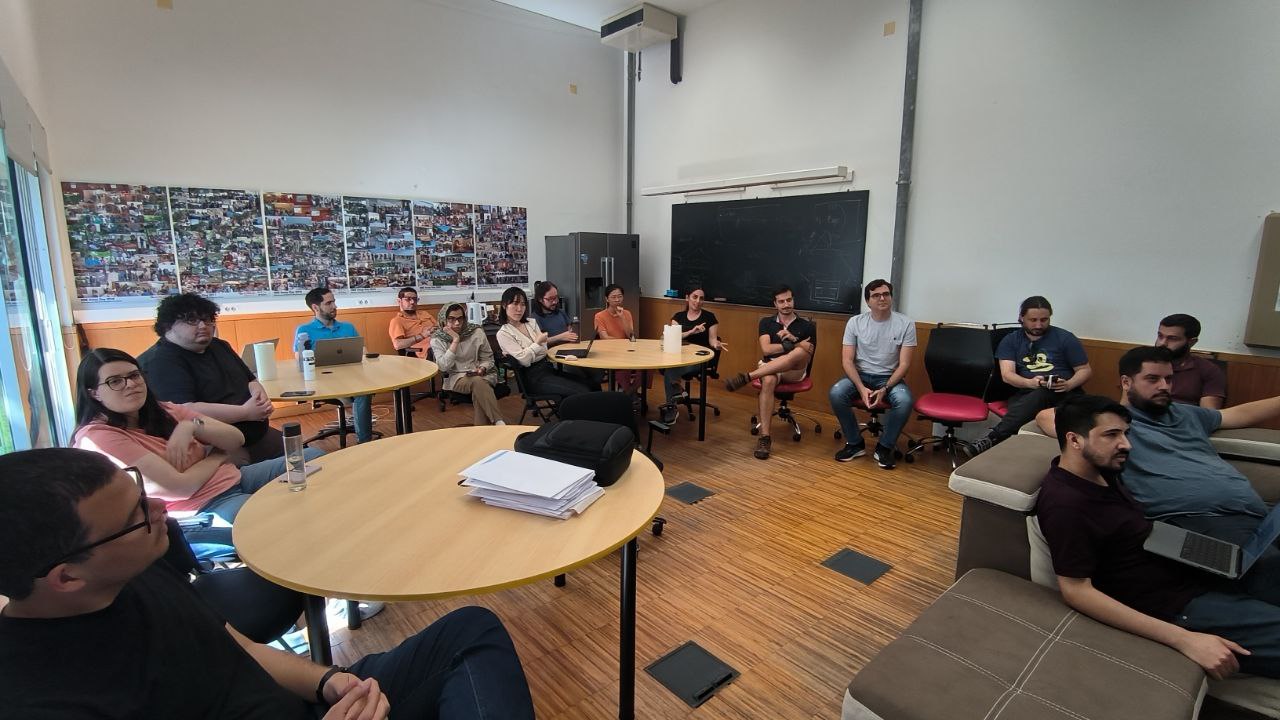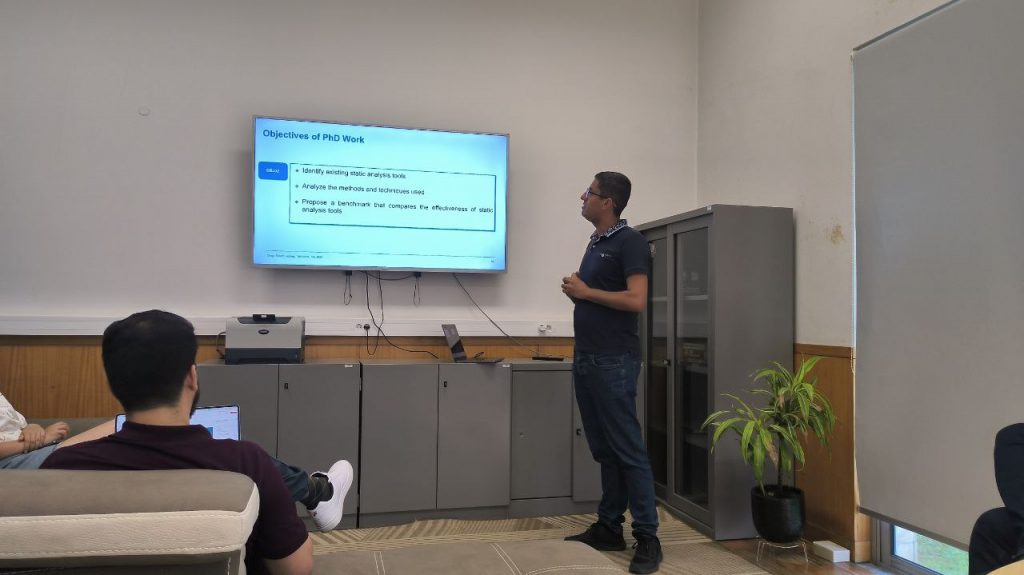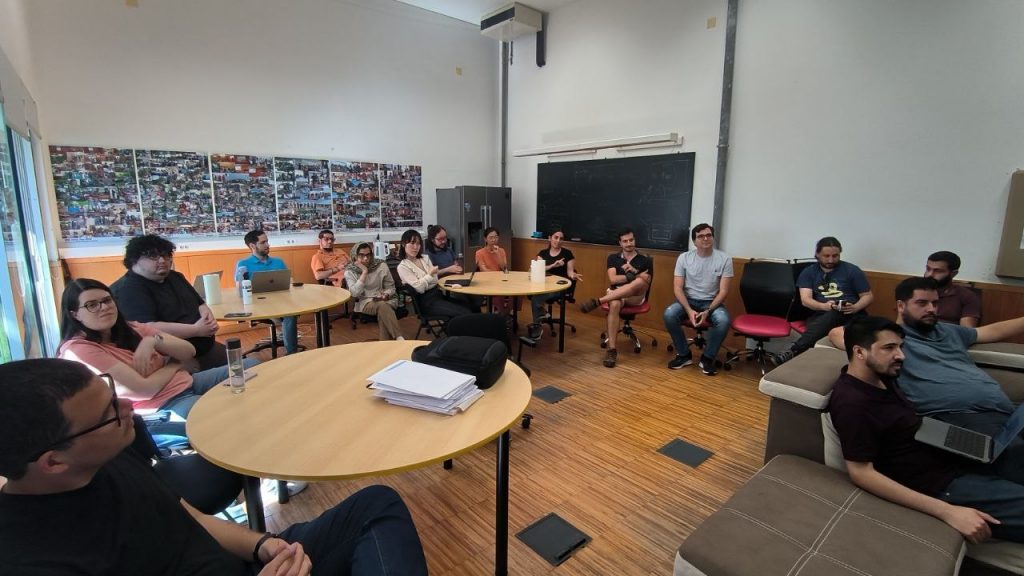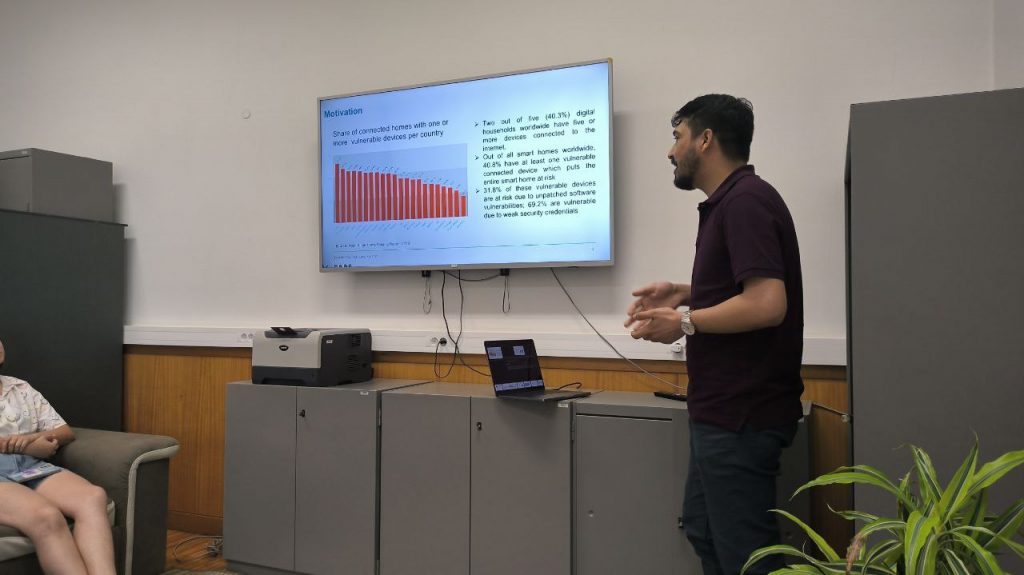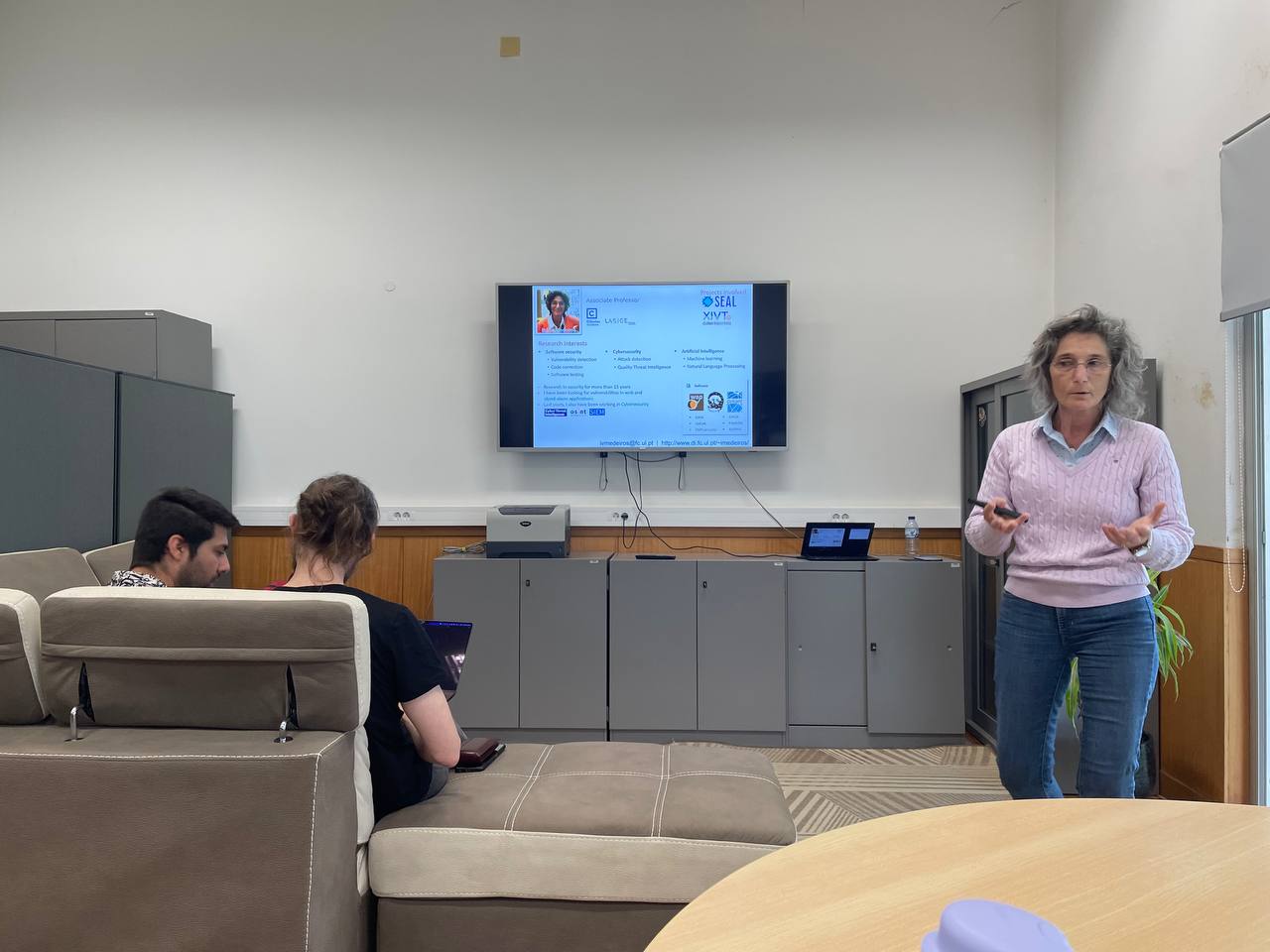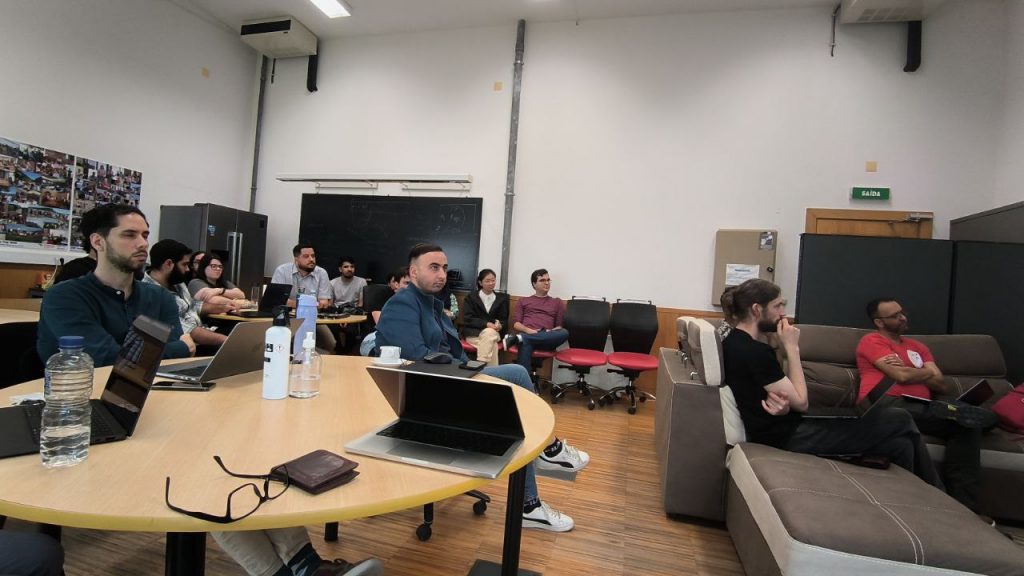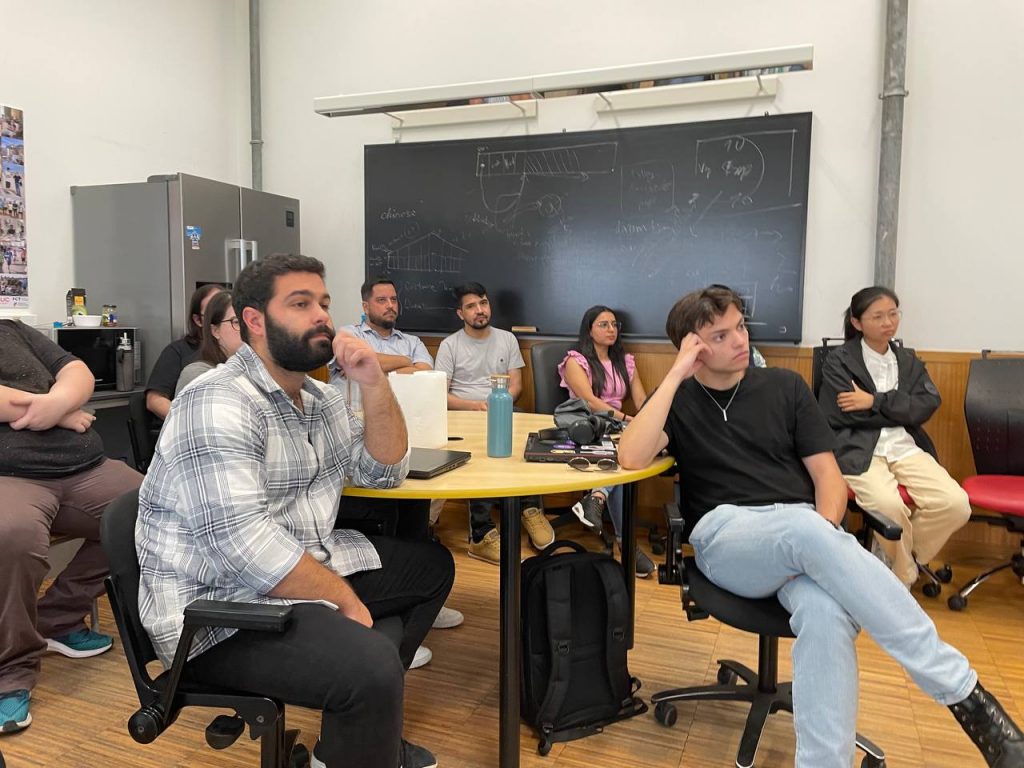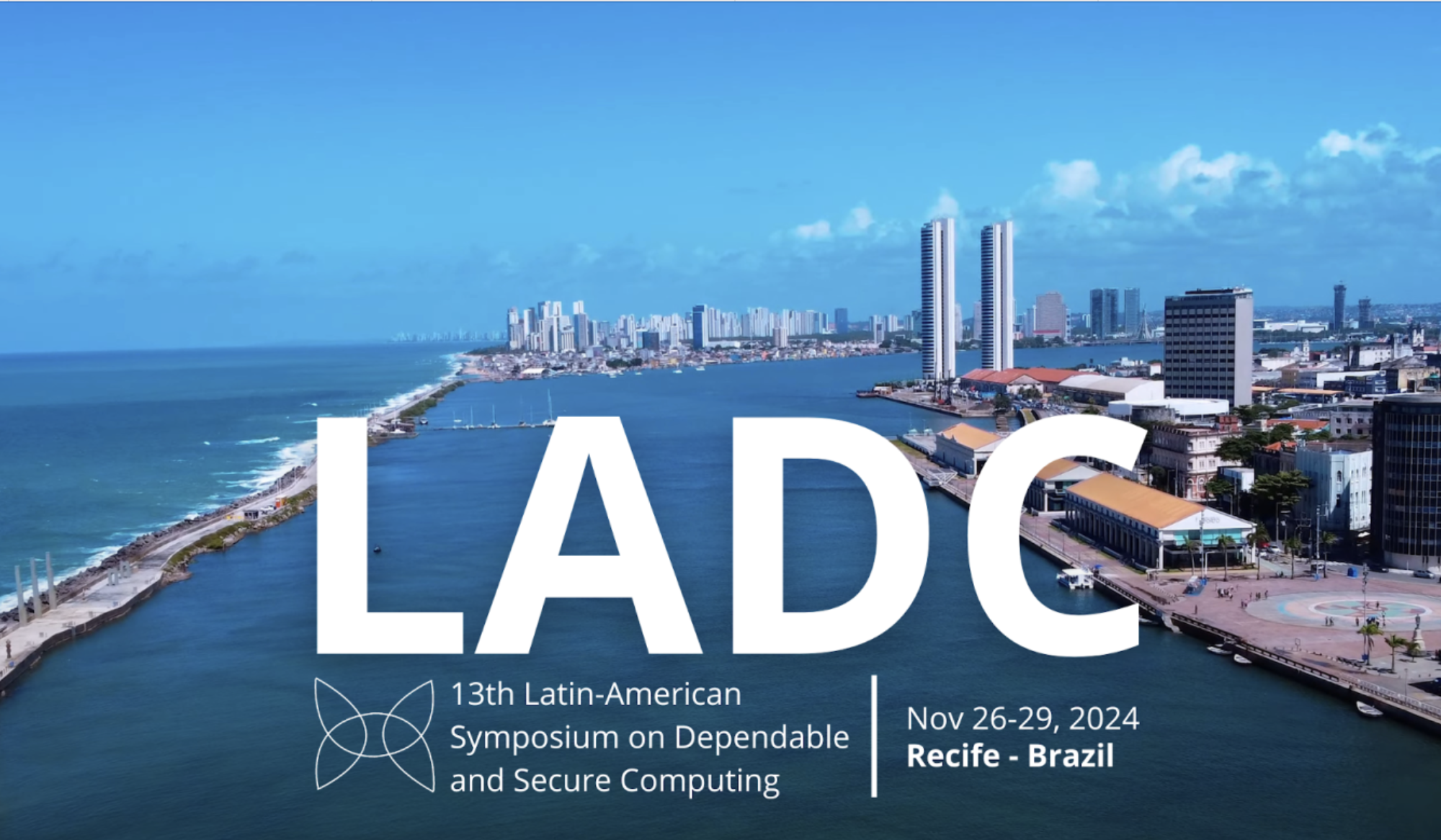13th of November at 16h00, Tiago Rolo and Rodrigo Nogueira will give two short presentations, to promote discussion on two relevant ongoing or disruptive topics. Afterwards, there will be a social gathering where everyone can talk freely on whatever subjects they like.
Location: G4.1
Tiago Rolo – “Efficient Write Operations in Event Sourcing with Replication”
Bio
Tiago Rolo obtained his Bachelor’s degree in Informatics at the University of the Azores, followed by a Master’s in Informatics Engineering from the University of Coimbra. Now enrolled in the PhD in Informatics Engineering, his research centers on data replication within the context of Event Sourcing.
Abstract
Event Sourcing (ES) is an architectural pattern in which applications maintain an audit log of all state changes, stored as an immutable sequence of events. Although replicating the event log can improve dependability, existing ES technologies do not exploit replication for efficient write operations.The challenge lies in enabling write operations on replicas without disrupting the sequential ordering of the log or incurring significant communication overhead between geographically distributed replicas. We addressed these concerns by designing a replication method that partitions application resources across two replicas, ensuring that most operations require only local ordering, reserving inter-replica communication for scenarios where resources are limited.We implemented our approach using the Axon Framework and evaluated its performance against MongoDB Replica Sets, where writes go through the primary replica, achieving a significant improvement in the speed of local write operations.
Rodrigo Nogueira – “Statistical Process Control for Supporting OS-level Failure Prediction”
Bio
Currently pursuing a Master’s degree in Data Engineering and Science after completing a Bachelor’s degree in the same field from 2020 to 2023 (both in the University of Coimbra). Besides that, I’ve been involved in research at CISUC – SSE since I was still in my Bachelor’s, focusing on the intersection of artificial intelligence with dependability and software engineering.
Abstract
In today’s society, software is relied upon to perform many critical tasks, where failures can result in substantial losses or even the loss of lives. Online Failure Prediction (OFP) aims to predict upcoming failures, enabling preemptive measures to be taken and mitigating potential hazards, by continuously analyzing the system’s current state, based on the assumption that symptoms, such as system misbehavior, precede failures. However, accurately characterizing a complex system’s (mis)behavior remains a challenge. A key question arises: How can we ensure that failure predictors are capturing genuine symptoms rather than simply identifying correlations in the data? This study explores the use of Statistical Process Control (SPC) as a potential tool for characterizing the stability and instability of the Linux and Windows Operating Systems. Through this approach, we aim to determine whether SPC methods can reliably indicate underlying issues that may signal potential failure. We analyze and compare various SPC techniques to evaluate their effectiveness in detecting software failures, focusing particularly on their robustness in identifying true signs of instability while minimizing false positives. Results indicate that these techniques are generally effective, successfully detecting the majority of failures with a minimal occurrence of false positives.
